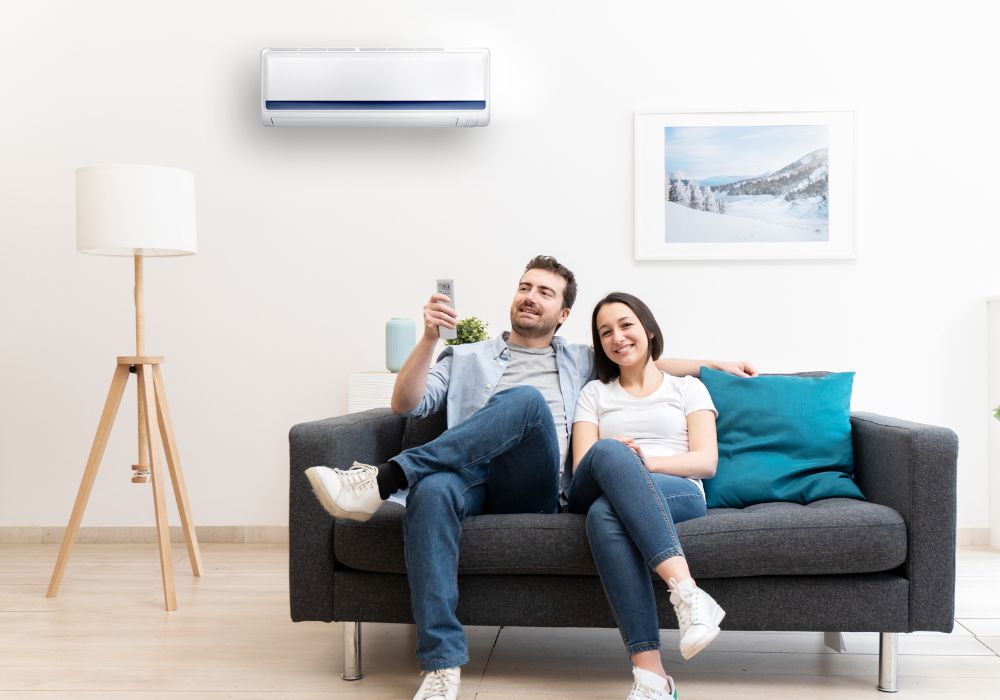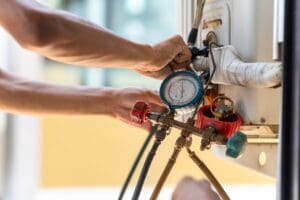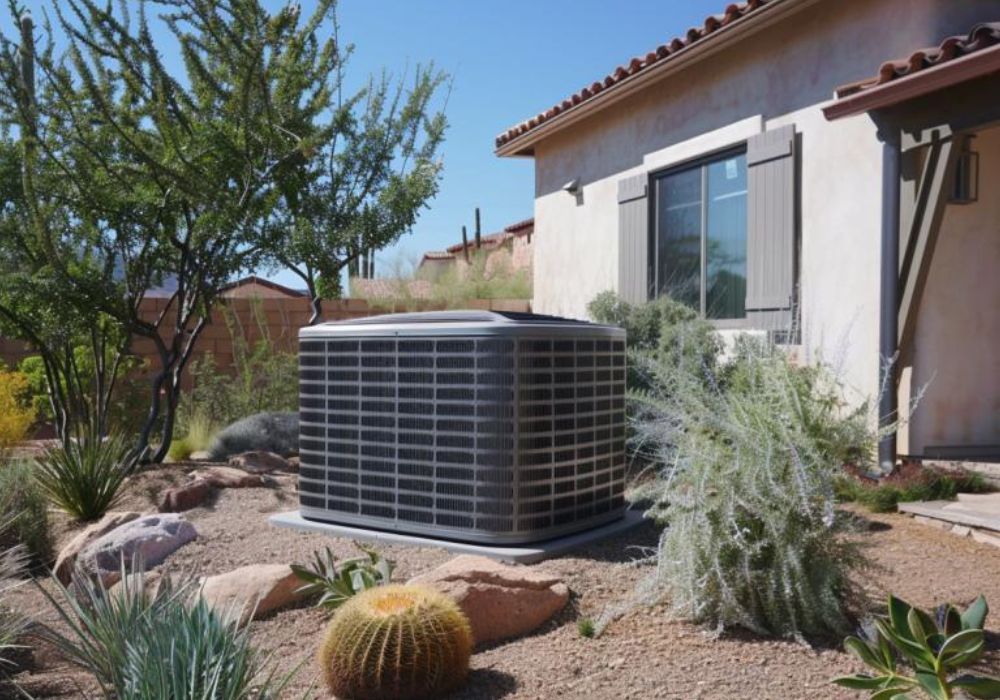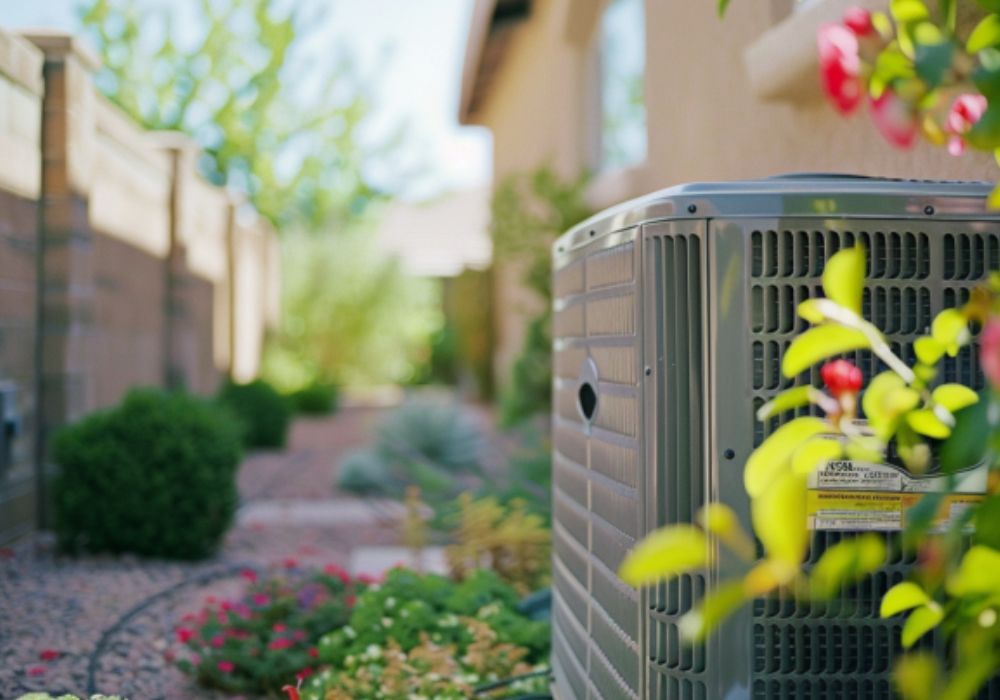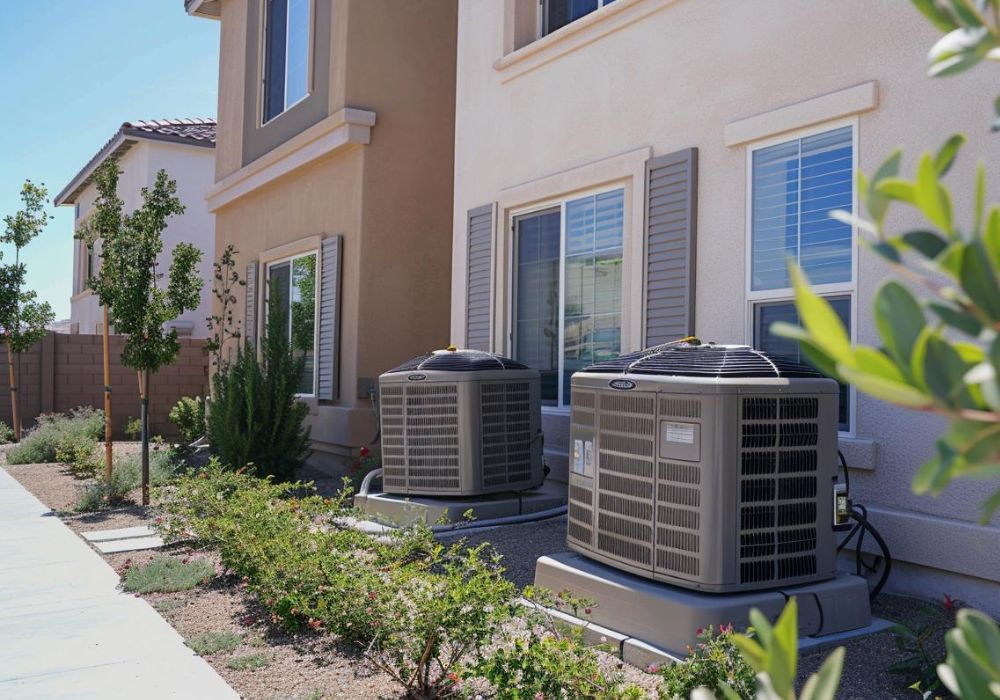5 Advantages of UV Lights
Most people have heard of UV Light, but most don’t attribute their edge to HVAC systems. HVAC systems have become multifaceted, technologically advanced systems that are self-regulated in recent years. At Summit Air Conditioning, we’re following the lead.
UV Lights as a part of our cooling and heating systems promote key advantages to any home or business that improve your quality of life, such as preventing mold growth via ultraviolet radiation and immediate spot removal if mold does become evident. UV Lights are an internal cleansing solution to HVAC bacteria, readily available from Summit Air Conditioning.
Call for Expert UV Light Services
What are UV Lights and How Do They Work?
As the leading Las Vegas UV installation company, Summit Air Conditioning knows a thing or two about lights. Using purple-hued, ultraviolet rays, Summit’s UV Lights shield your HVAC system from unwanted erosion, mold, and bacteria in one sweep. One burst of radiation and your HVAC is ready to circulate clean, mold-free cool air.
UV Lights operate during the air circulation process, not after it. While your air is pushing through, it is actively being stripped of harmful microorganisms aiming to compromise your health. Summit promises to not only provide you with a superior HVAC service but also to protect you from the possibility of toxic air exposure.
Call for Expert UV Light Services
How Effective are UV Lights?
If you’re immunocompromised, or easily bothered by harmful air conditions, look no further for non-invasive, clean air quality. Summit Air Conditioning’s goal is to modernize how air conditioning functions without compromising quality. UV Lights kill 97% of pesky bacteria hiding in place, restoring air quality.
Do not underestimate the power of UV Lights in improving air quality. Research shows that those who implement UV Lights within their home or business HVAC system receive superior, filtered air. Clean air isn’t a luxury, but rather an underrated essential at Summit Air Conditioning.
Call for Expert UV Light Services
Different Kinds of UV Lights for Home
Same superior filtering, and different lights. UV Lights at Summit Air Conditioning are available in multiple variations to fit your individual cooling needs. The two types of UV Light systems offered by Summit Air Conditioning have the same goal of filtering your air efficiently and blocking harmful materials in the meantime.
Coil Sterilization lights
Think of a glorified glow stick with this type of UV lighting. Coil Sterilization lights are placed inside your HVAC return air duct, sterilizing the coils through radiation. The UV lights are small, stick-like tubes that sit next to the coils for direct sterilization. Musty odors are essentially zapped away with this UV option.
Air Sterilization lights
This version of UV lighting is best for those wanting clean, on-site toxic air elimination. For those who live with asthma, or just prefer filtered air, our air sterilized UV lights are for you. Explore our ultraviolet, cleansing UV Lights at Summit Air Conditioning for cost-effective lighting solutions with power.
Are UV Lights Safe?
Guarantee a safe, effective UV light option for your home or business by making sure to partner with one of our installation technicians at Summit Air Conditioning. We understand that the user-focused mission of UV lighting may make it seem like installation could be done independently, but we recommend having a professional install your light to minimize safety concerns.
Your technician at Summit Air Conditioning will guarantee that these safety precautions are taken:
- Using the correct spectrum of UV light: Using the incorrect spectrum of UV light can easily harm a resident’s eyes, whether the contact is indirect or direct. You can guarantee that your new UV light is operating on the correct spectrum by enlisting a technician at Summit for seamless installation.
- Installing the light according to manufacturer instructions: Following the instructions your UV light manufacturer has recommended is best to yield safe, simple installation. If you have any questions about the installation process, our on-site technicians are available and happy to assist.
- Wear protective gear: gloves, goggles: Safety is imperative when interacting with UV rays, and this begins with wearing the right protective gear. A technician will arrive on-site wearing protective gear to shield themselves from UV strays.
- Placing at the correct angle to protect the resident’s eyes: As previously stated, coming in contact with powerful ultraviolet rays can be lethal to your eyes. Your technician will install your UV light at an angle that does not allow you to come into direct contact with your UV light unless necessary.
Call for Expert UV Light Services
5 Benefits of UV Lights
UV Lights are a scientifically proven method of air filtration that is sleek enough to fit into your well-decorated, minimal residence. The benefits of having a UV light system added to your existing lighting rotation are endless. Built into a lamp to promote discretion, UV lights are powerful, soft in appearance, and dependable in eliminating harsh air that could potentially irritate you. Gone are the days of air impurities, slow air circulation, or illness when UV lights are your main source of filtration.
Reduce Mold And Mildew
Mold and mildew become nothing more than off-campus residents with the installation of any UV lighting. We aim to strip your home of any bacteria that could compromise your home in its entirety, with just one device.
Improved Air Quality
Once the presence of mold and mildew are gone, you can expect superior, healthy air quality. Hold your air quality to the same quality you hold your friends, family, and self to by choosing a discreet air filtration add-on like a UV light.
Disease Prevention
When your air quality is considered healthy, it is free of any present or future presence of illness. Thoroughly clean out your home air circulation by installing a UV light to zap away any developing signs of contamination, protecting yourself and your family from airborne disease.
Improved Airflow
Circulation is one of the most important, obvious signs of a well-working air system. If you find that your air is not circulating in full rotation, consider that your air system is simply not efficient enough. UV lights improve the circulation of clean air by working efficiently, rapidly, and effectively.
Cost-Effective Investment
UV Lights are a cost-effective lighting solution because they provide improved air quality and circulation, an all-in-one device. Save yourself the extra cash it takes to recover from an airborne illness by choosing a lighting add-on that prioritizes your health, wealth, and time.
Call for Expert UV Light Services
Can UV Lights for HVAC Really Increase the Air Quality in My Home?
We wouldn’t be alive without the breaths we take, so why not invest in the quality of that air? UV lights installed as an addition to your HVAC system really do increase the air quality of your home in strides.
The quality of your household or business air will be immediately improved by the powerful radiation of UV lights, instantly killing any bacteria that could pose a threat. In addition to removing compromising pathogens, UV lights provide a well-circulated, efficient air experience by improving the speed at which your HVAC systems function.
Call for Expert UV Light Services
What Types of HVAC UV Light Systems Are Available?
Although how UV light systems operate is clean-cut and simplified, the science behind them is complex. The waves that the ultraviolet light in UV lights radiates come in a variety of lengths and magnitudes, posing a need for residential and commercial options. At Summit Air Conditioning, we provide options for your individual lighting and filtration needs.
We provide customers with two main UV light options: air sterilization and coil sterilization. Air sterilization banks on circulation to effectively spiral around clean air, while the coil is placed at the sight of the bacteria to provide immediate removal. Air sterilization lights are an in-duct system placed in coordination with your HVAC, while coil sterilization lights are placed inside lamps or in bacteria-prone areas.
Call for Expert UV Light Services
Have a Professional Install Your UV Light
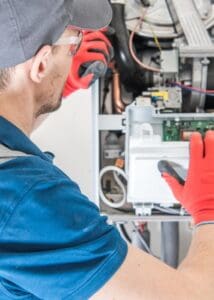
If you’re considering installing a UV light, please consider calling us at Summit Air Conditioning to provide an installation service that has your well-being in mind. Having a professional install your UV light is imperative because it promotes safety that cannot be guaranteed by a residence or business conducting installation to the best of their ability. We promise to protect your eyes, sanity, and air quality by providing you with a comprehensive UV light installation experience.
Call for Expert UV Light Services



